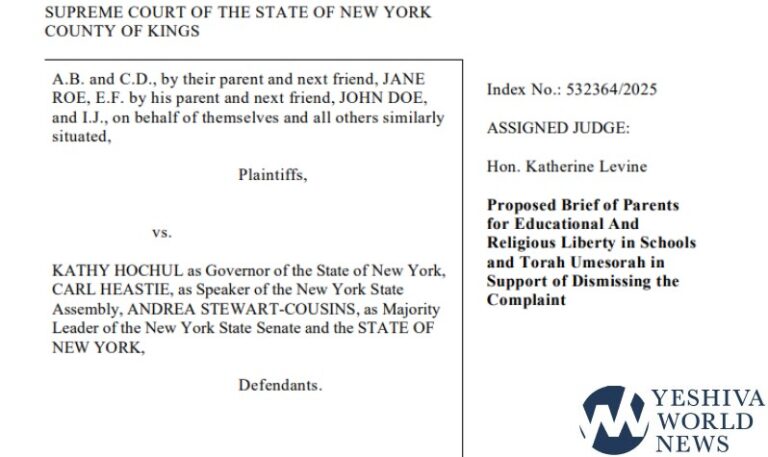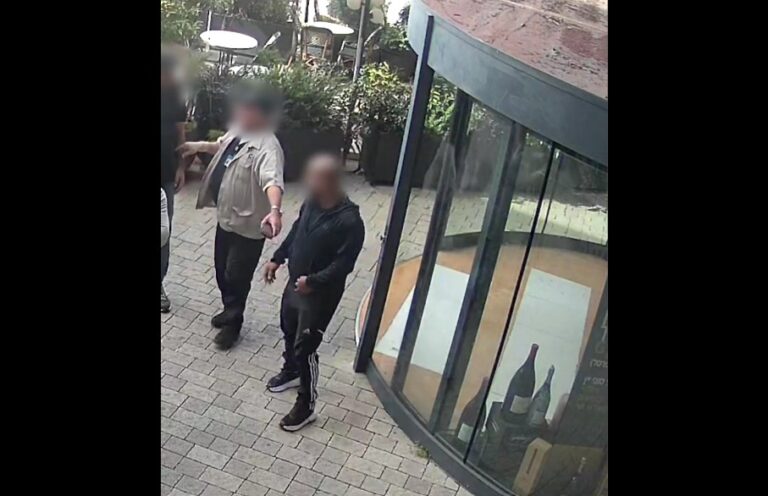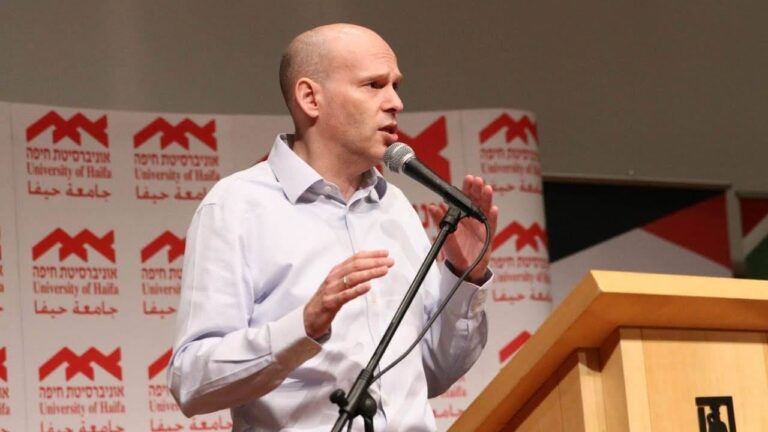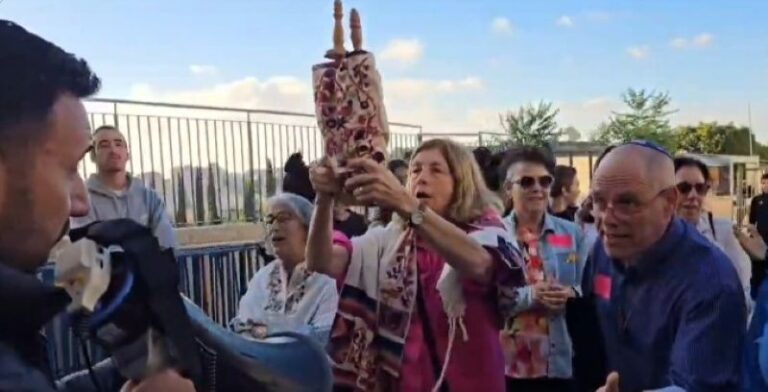The Jewish community is reeling with heartbreak following the tragic news of Reb Dovid Traube’s, z”l, drowning in Greenwood Lake yesterday.
In response to the numerous questions and concerns we have received, Project Chai, the crisis intervention, trauma and bereavement department of Chai Lifeline, will host a community-wide conference call tonight, Monday, August 19, at 9:30 p.m. ET. Rabbi Dr. Dovid Fox, Project Chai Director of Interventions and Community Education, will address various psychological, spiritual, parenting, and practical concerns regarding children and adults. The public is invited to call in at (515) 604-9602; access code 660597. Following the call, a playback recording will be available at (515) 604-9690; access code 660597; reference number 20#.
In Chodesh Av, and particularly in the days since Tisha B’Av, our world has been confronted with painful situations, many of which hit very close to home. Summer camp emergencies, vacation tragedies, unexpected and unheard-of accidents, and loss of life.
In being confronted by catastrophic events, especially when children, parents and families are enjoying the calm and ease of summer relaxation, the mind and heart turn quickly and automatically to worry about one’s own family, one’s own away-from-home safety, and the risks and dangers which seem to arise c”v without warning and with no means of prevention.
*****PLEASE NOTE – YWN IS GIVING AWAY $5,000 CASH – JUST SIGN UP TO FOLLOW YWN WHATSAPP STATUS AND GET THE DETAILS!***** Make sure you are one of the more than 20,000 that signed up to YWN WhatsApp Status to receive news in live time. Click this link – or send a message to 1-888-4-YW-NEWS (888-499-6397) – to see our status posts*****
There are very important steps which those in positions of guidance, including parents, teachers, camp staff, rabbinic leaders, and those to whom others turn for role modeling and for reassurance should follow in addressing the fears and questions of children, students, campers, friends and others.
Project Chai has issued the following general guidelines for understanding and facing the range of reactions which are sadly common in the aftermath of tragedy, and for providing support and focused care can assist those who will turn to you at this time.
- It is normal to feel deeply saddened. This may be experienced as tearfulness, as loss of initiative, as low energy, fatigue, as loss of appetite. The mind and the soul in some ways almost “conspire” to react to anticipation of loss of life by having the body experience other more concrete losses such as lack of interest in familiar and even necessary things.
- It is normal to feel uneasy. Encountering tragedy during one’s youth opens up a new vista on life, namely, that time in this existence is finite. Some young people are suddenly confronted with worries about losing others, nervous about those who are dear to us and who are aged.
- It is normal to experience a sense of loneliness and isolation. It is difficult to open up and examine one’s own feelings. Some people rebound from facing such distressing possibilities by withdrawing and not feeling comfortable opening up to others, even to friends, about their emotions.
- Whenever life is in sudden peril, it is normal to engage in existential contemplation, pondering the meaning of one’s own life, one’s values. At times, students will throw themselves back into their learning with a great intensity, or will seek refuge in profound lengthy davening, or at times… have the impulse to do the opposite, retreating from their studies andtefillos and feeling detached and unmotivated about getting back into their routine and lifestyle.
- It is normal to ponder the nature of the unexpected, and to wonder about spiritual matters. At times students want to explore questions that they may feel are esoteric, such as where and what are the Divine hashgacha, what is happening out there, and other very spiritual topics which they may have little information about.
In coping with the challenge of shock, or of grief, and of the ultimate and dreaded fear of loss, it is necessary to address and elaborate on each of the above pointers.
- There is a difference between reactive sadness and clinical disturbance or depression. Most people who grieve a loss do begin to regain their strength and motivation in a week or two. When the sadness is very embedded and unchanging, when one feels unable to return to their usual self or continues to feel “not like myself,” it is important to confer with a trusted mature adult. One can consult with a rabbi or with a parent. There should be no shame associated with admitting that you are struggling. A mature, compassionate mentor will never make you feel stupid or embarrassed if you disclose that you are continuing to have a difficult time. Logic and reasoning are seldom sufficient tools or interventions to jolt one out of feeling depressed. It is important to be able to “process” your feelings and if you cannot do so with a rebbe or parent, it may be helpful to speak with a professional who understands the differences between grief and depression.
- Anxiety is part of the human condition and can take many forms, depending on the type of stress which has troubled a person and depending on the person himself. Anxiety can present as nervousness, nervous energy, fear, phobia, panic or even a host of physical symptoms. It generally abates over the short term but if you continue to feel “out of sorts” after two weeks or so, or if even early on you are experiencing intense debilitating anxiety, you will likely benefit from a consultation with a professional who understands the anxiety continuum and who can help strategize for healthy management of your worries and fears.
- People do tend to withdraw at first upon hearing bad news. It is most therapeutic, however, to get yourself back into your routine, and to encourage your friends to do so as well. This does not mean that you are supposed to deny or suppress your thoughts and feelings. It does mean that you are supposed to talk them through with those who respect your internal process while also giving yourself the healing gift of letting yourself recover your love of learning and your love of life. Never sacrifice your basic human needs for food, water, warmth, shelter and camaraderie when you are struggling with grief.
- Fear of loss is a spiritual as well as a psychological crisis. The concept of death is, for most younger people, concealed in a lot of mystical cloudiness… and confusion. Fortunately, we have not only Torah sources to turn to for help in navigating some of the mystery, but we also have great Torah leaders to whom we can pose our uncertainties and, hopefully, be given either words of encouragement or words of enlightenment. Find someone who you can feel close to, and whose words can illuminate and strengthen you. This is not a moment in your development where you should be teased or humiliated for expressing your musings. Find a mentor. Ask him to help you know what to study and how to make sense of your spiritual questions. Do not conjecture or speculate about spiritual realities that you may know little about. There is so much non-Torah information out there on these topics which is harmful, misleading, and very contrary to our own beliefs. Get your information from a true Torah scholar. There is nothing like death, sadly enough, which brings out the immediacy of one feeling something deeply moving inside which can lead to spiritual awareness and maturing.
- A mentor can help you determine what can become a productive spiritual course to follow at this time, and what might be overdoing it. Too little attention to one’s spiritual yearnings is antithetical to ourhashkafa. Excessive immersion in ritualistic behavior, however, is seldom healthy. Keep away from extremes and aim for stability, especially at this time
Project Chai encourages anyone with questions or concerns to contact [email protected] or 855-3-CRISIS.
(YWN World Headquarters – NYC)











